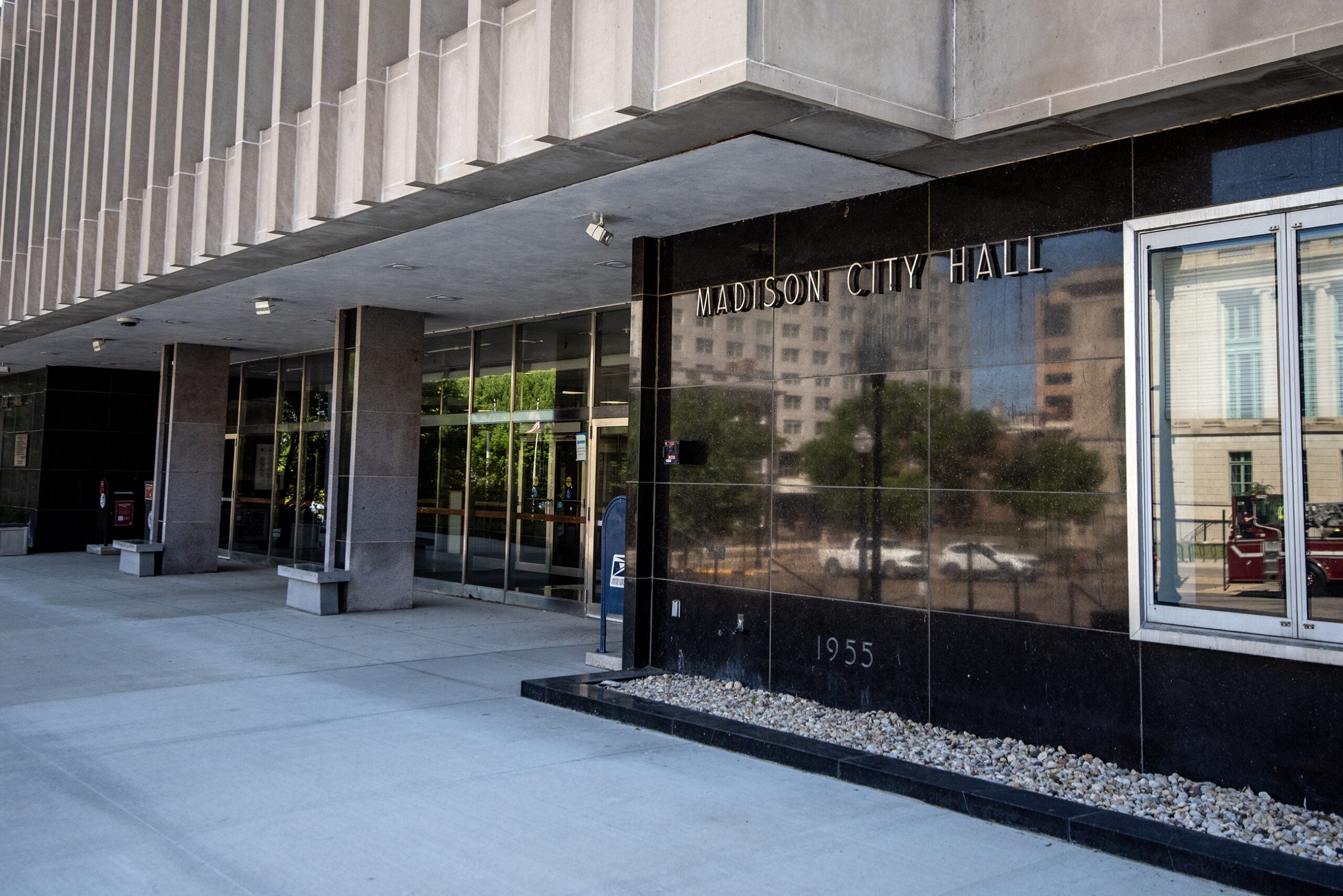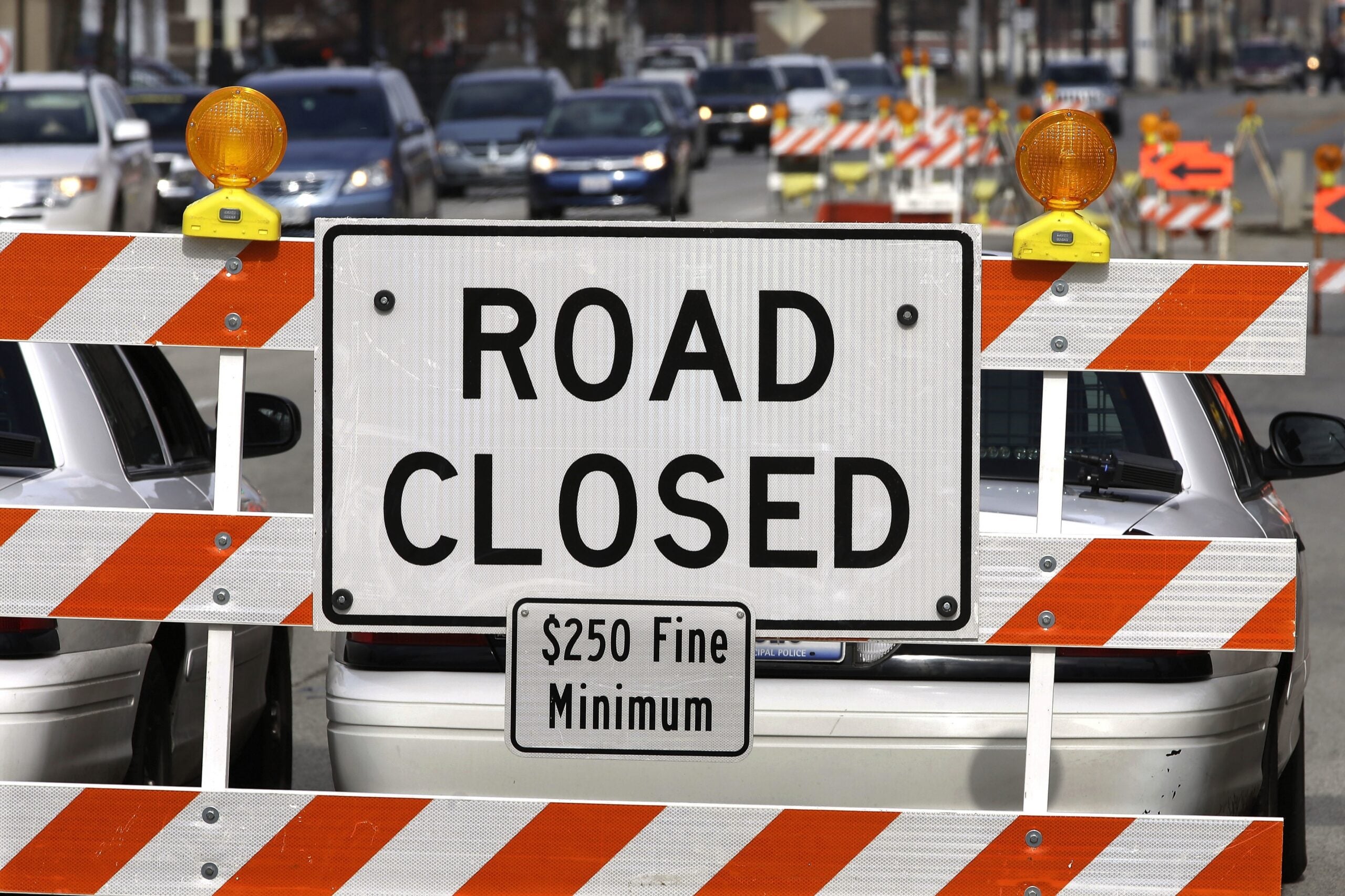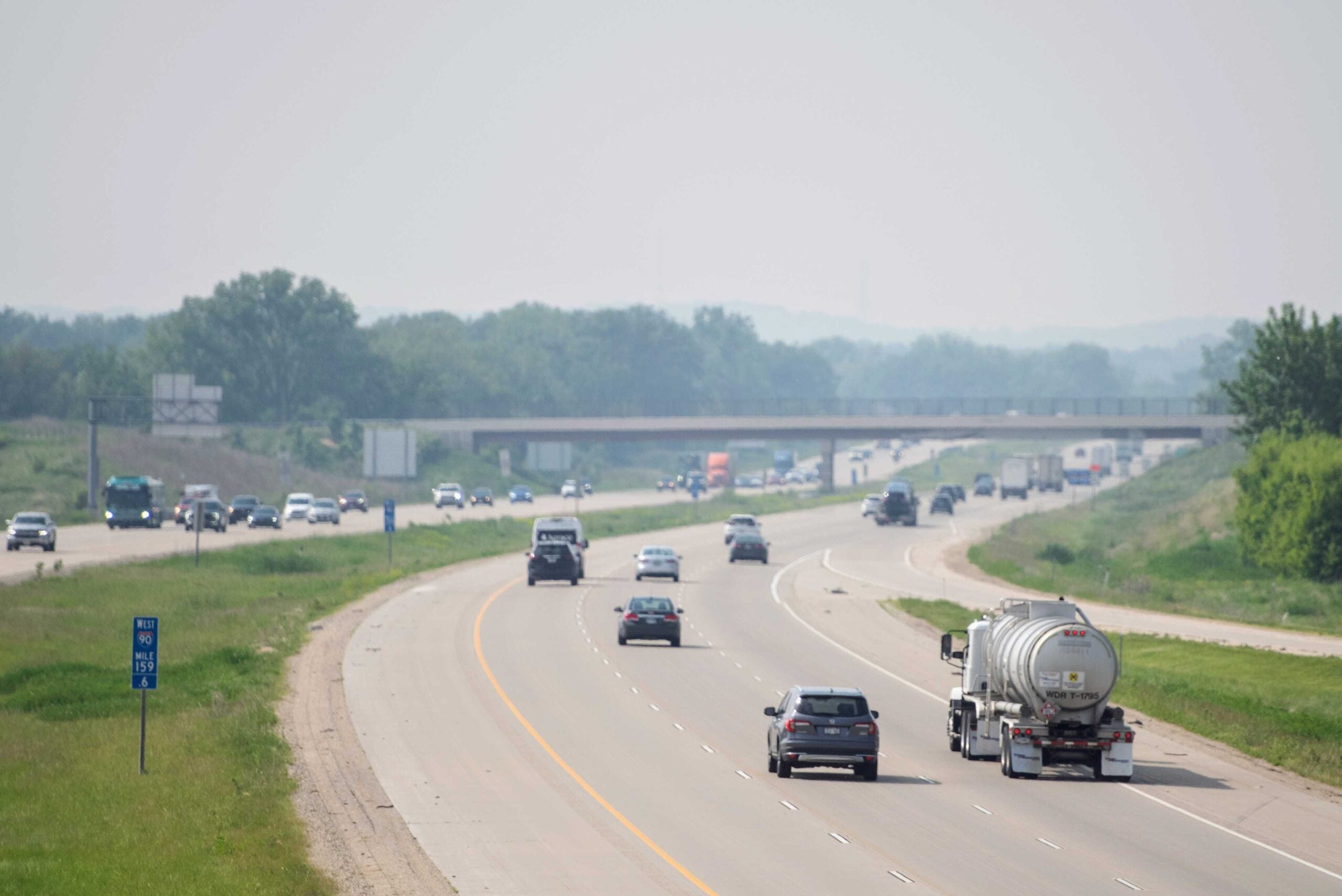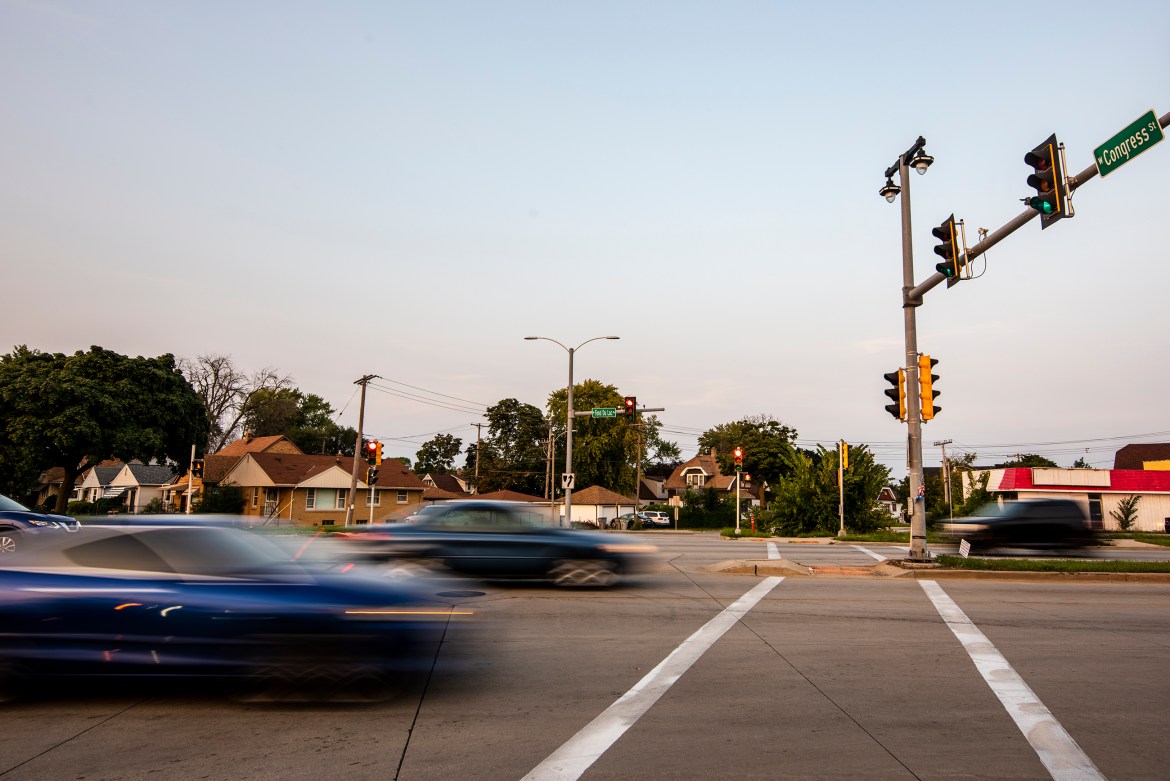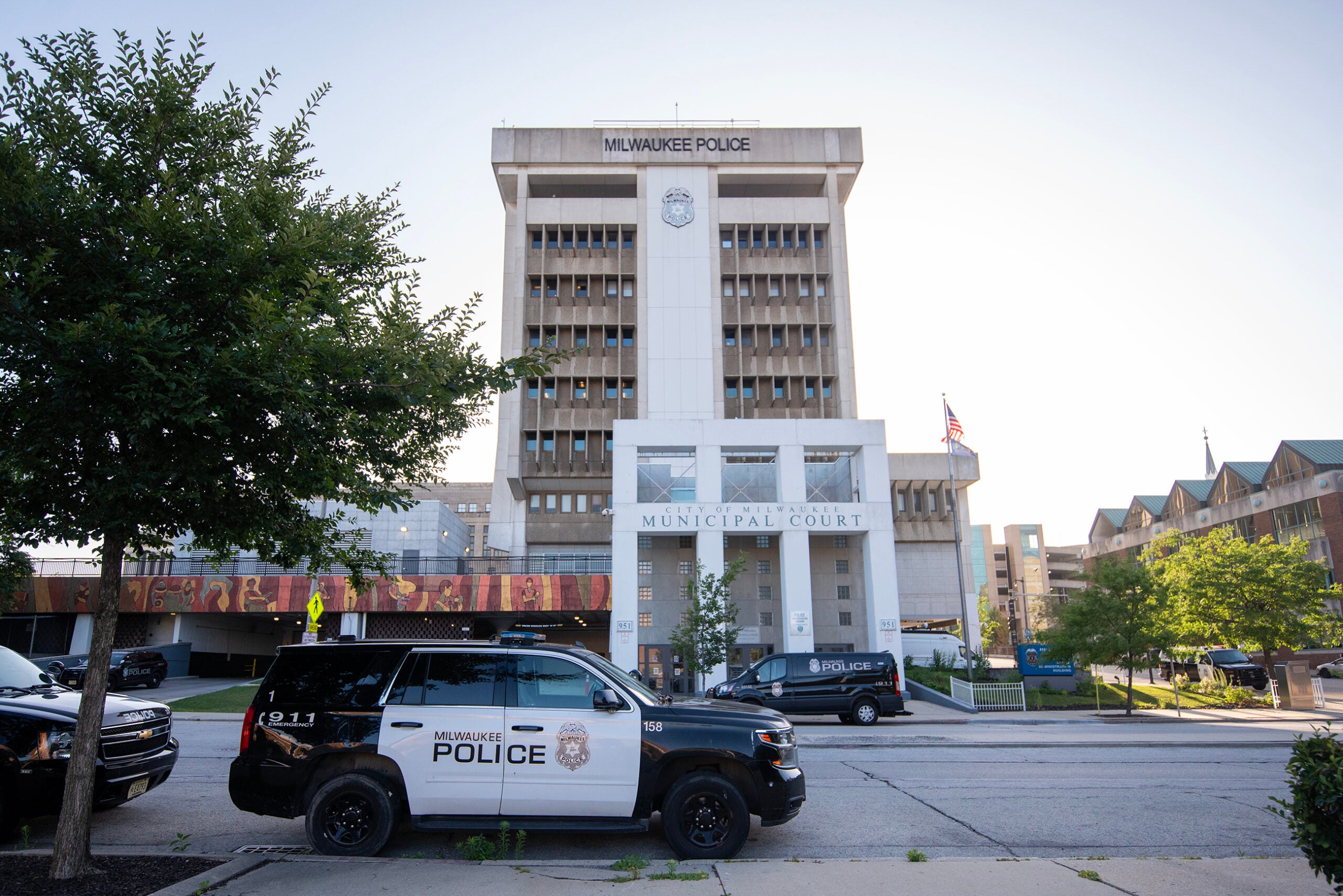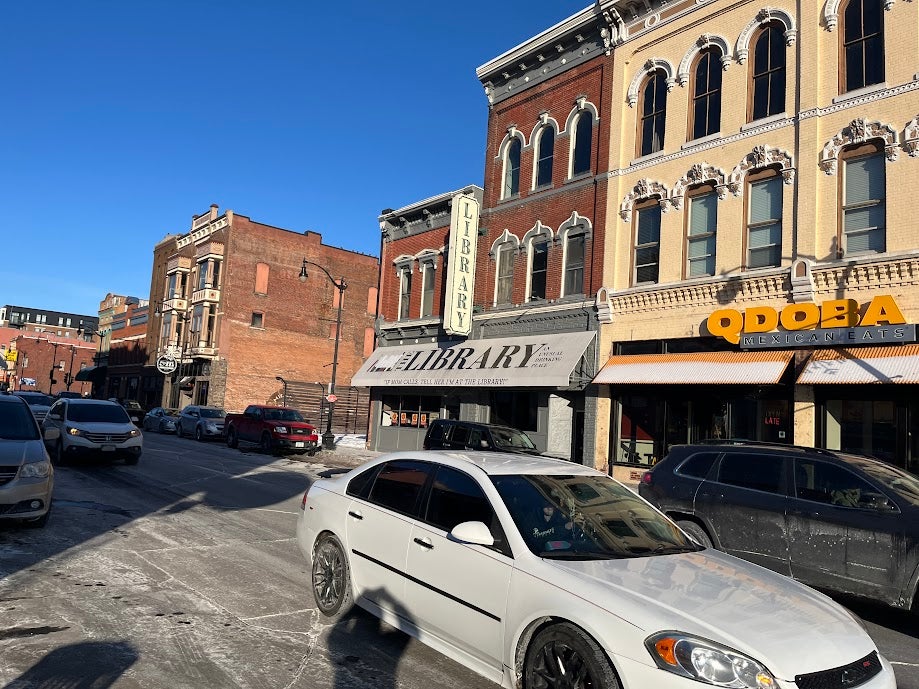Last year, state lawmakers reached a deal that allowed the city of Milwaukee to impose its own local sales tax, a first in Wisconsin.
It’s something officials in the city of Madison have wanted for years, and earlier this spring, they renewed their efforts.
The city’s Common Council approved a non-binding resolution urging state lawmakers to expand local tax authority — something that’s not allowed in any Wisconsin city aside from Milwaukee.
News with a little more humanity
WPR’s “Wisconsin Today” newsletter keeps you connected to the state you love without feeling overwhelmed. No paywall. No agenda. No corporate filter.
The resolution asked for the ability to leverage a citywide sales tax of 0.5 percent, as well as an additional tax in communities served by the Madison Metro bus system.
Wisconsin’s statewide sales tax is 5 percent, and most Wisconsin counties leverage another 0.5 percent sales tax on top of that. Local governments can collect an annual wheel tax from vehicle registrations, and a handful of Wisconsin tourist communities use a tax on local retail to help fund infrastructure.
Compared to local governments in other Midwestern states, Wisconsin municipalities are more heavily reliant on property tax revenue, said Jason Stein of the Wisconsin Policy Forum think tank.
But state law ties growth in property tax revenue to new construction, and limits the ability of local governments to raise those tax rates without voter approval.
“When you look at local taxes for cities and villages, the property tax is basically the only game in town,” Stein said.
Lawmakers agreed to Milwaukee deal to avert potential bankruptcy
Milwaukee’s 2 percent sales tax went into effect Jan. 1, after being approved by a majority of the city’s Common Council.
It was coupled with an increase to Milwaukee County’s sales tax, which rose from 0.5 to 0.9 percent.
The changes, which included an increase in state revenue sharing to local governments, were part of a landmark deal between lawmakers and Gov. Tony Evers, known formally as Act 12. It was designed to avert a looming financial crisis for the city of Milwaukee.
While Madison is projecting a budget shortfall of $27 million, Stein said its financial troubles are less acute than Milwaukee’s were. Straddled with an underfunded pension system, Milwaukee faced the possibility of bankruptcy before the sales tax passed.
“They were staring down the prospect of laying off hundreds of police officers, or at least eliminating hundreds of police officer positions, closing libraries or curtailing the hours of libraries, maybe closing fire stations,” Stein said. “I think the Legislature took a look at those and decided that it didn’t want to roll the dice on those things happening.”
For more than a decade, Madison has faced some degree of a projected shortfall each year as it plans its budget. Pandemic-related aid from the federal government has helped to close the gap in recent years, but city officials say it’s a struggle to maintain existing service levels in the face of state-imposed restrictions on revenue.
Under state law, the city must balance its budget. In 2025, expenditures are expected to exceed revenue by $27 million. That gap could exceed $60 million by 2029, according to city projections.
Along with spending cuts, Madison’s Common Council has discussed closing its budget gap by asking voters to approve a property tax increase.
The Common’s Council’s recently-approved resolution noted that a 0.5 percent Madison sales tax could bring in $35 million annually. An additional 0.5 percent sales tax in cities served by the Madison Metro could generate $50 million a year, it estimates.
The resolution urges Madison to make local sales tax authority “a priority for its legislative lobbying efforts,” although alders acknowledged such a proposal faces an uphill battle.
During a debate on the council floor, Madison Alder MGR Govindarajan expressed skepticism, noting that Milwaukee’s deal with the Legislature came with strings attached. Those provisions included requiring that armed police return to Milwaukee Public Schools, and banning the use of city sales tax revenue to hire staff tasked with promoting diversity, equity and inclusion
“We know that the Legislature is not willing to work with us,” Govindarajan said. “We know that when they did it for Milwaukee, they put in over a dozen poison pills that really harm the city itself of Milwaukee.”
During a Common Council meeting last month, Madison Mayor Satya Rhodes-Conway told alders the city’s lobbying agenda has long included a push for expanded tax authority.
“The city’s legislative agenda … has for over a decade included a request to be able to have a regional transit authority,” Rhodes-Conway said. “It will continue to contain that, and it will continue to contain a request to have the ability to levy a sales tax locally.”
Evers proposed allowing sales tax from larger cities
In his last two budget recommendations, Evers proposed allowing cities with more than 30,000 people to levy a 0.5 sales tax with voter approval.
Those measures were blocked by Wisconsin’s Republican-led Legislature.
The office of Assembly Speaker Robin Vos, R-Rochester, did not respond to a request for comment Friday about the possibility of expanding local sales tax authority in the future.
In a statement, Senate Majority Leader Devin LeMahieu, R-Oostburg, did not directly answer a question about his position on expanding local sales authority.
But the statement noted that the local government funding bill passed by lawmakers last year significantly boosted state aid to local governments, including Madison.
“Local governments saw the largest increase in shared revenue ever,” LeMahieu wrote. “This historic Act passed by the legislature, ties shared revenue to state sales tax collections moving forward, allowing local budgets to better withstand inflationary pressures. The city of Madison received a 58% increase in their shared revenue payment.”
The League of Wisconsin Municipalities, which lobbies on behalf of Wisconsin’s cities, towns and villages, does not have an official position on whether state law should be changed to allow more cities to levy their own sales tax, said Jerry Deschane, the league’s executive director.
But Deschane noted such a change would give cities more options, allowing them to diversify their revenue sources.
“It’s a tax that’s tied to the local economy,” Deschane said of sales tax. “So it provides a real strong incentive for the local government to do whatever it can to support the local economy. And it’s got more potential for growth than the property tax, to be frank.”
The possibility of adding local sales tax is a “frequent topic of discussion” among mayors and other city leaders, Deschane said.
“I think they just simply haven’t seen that the time is right to approach the Legislature,” he said. “But I don’t think the door is closed to a continued conversation on this.”
Wisconsin Public Radio, © Copyright 2025, Board of Regents of the University of Wisconsin System and Wisconsin Educational Communications Board.

